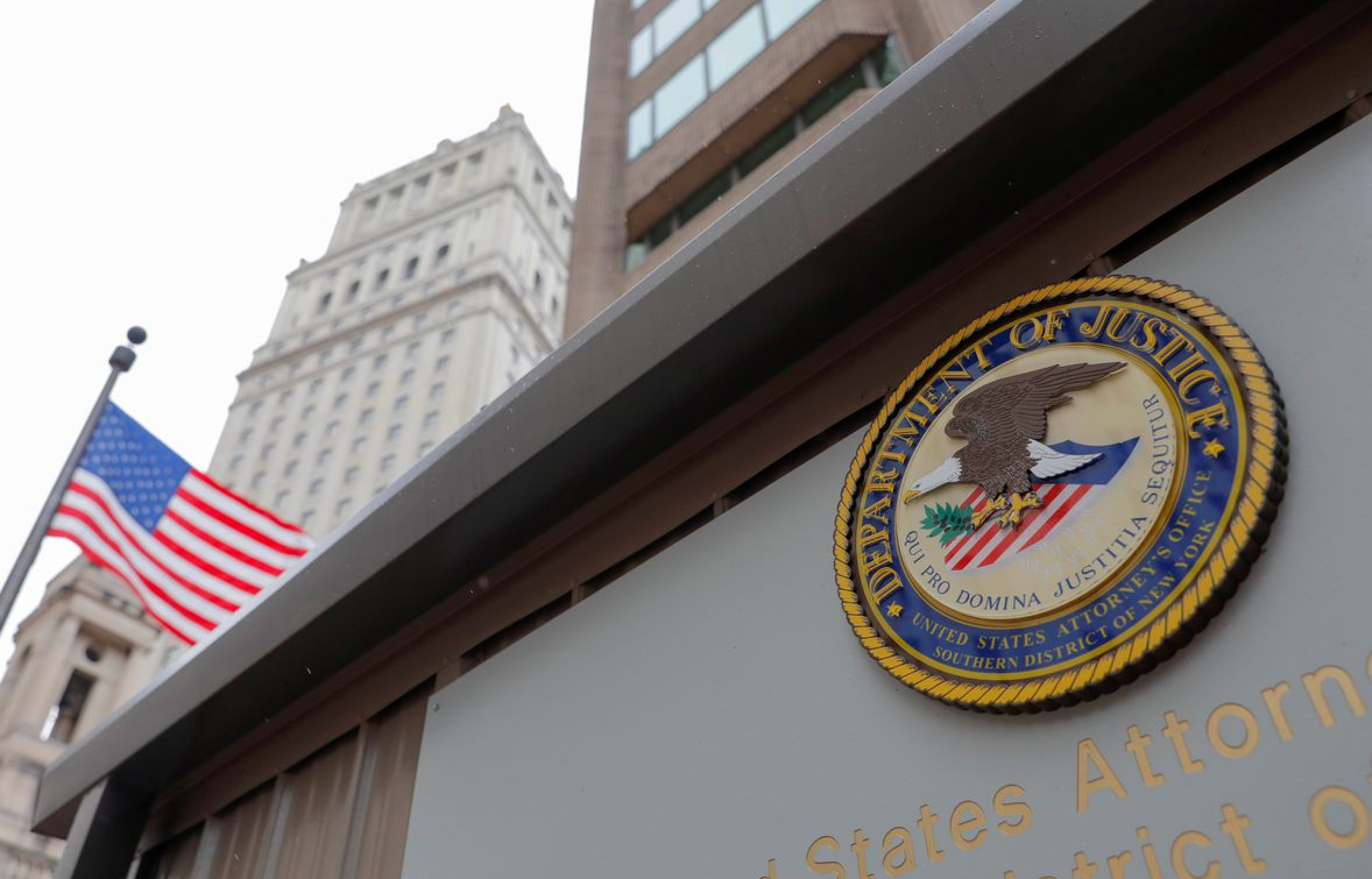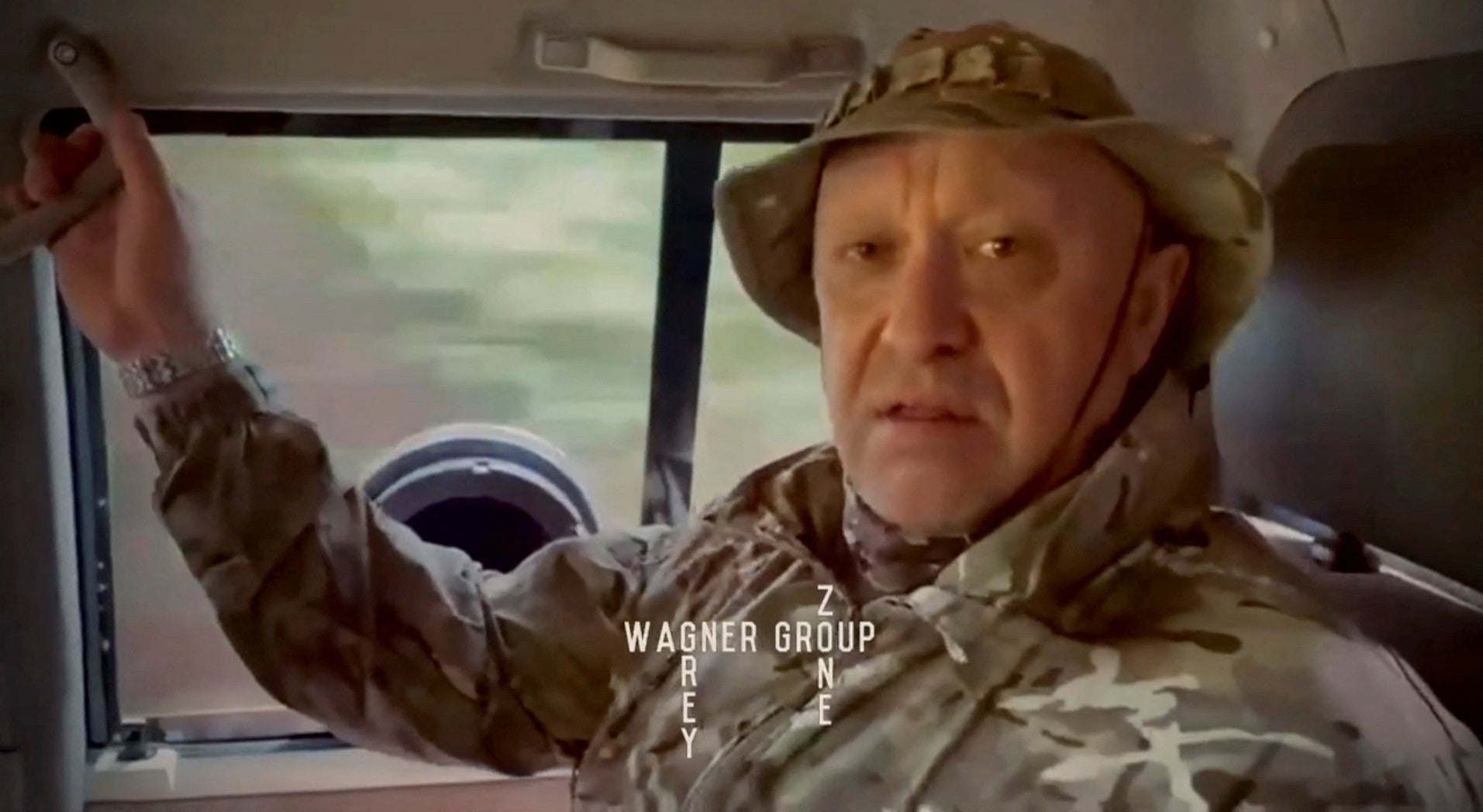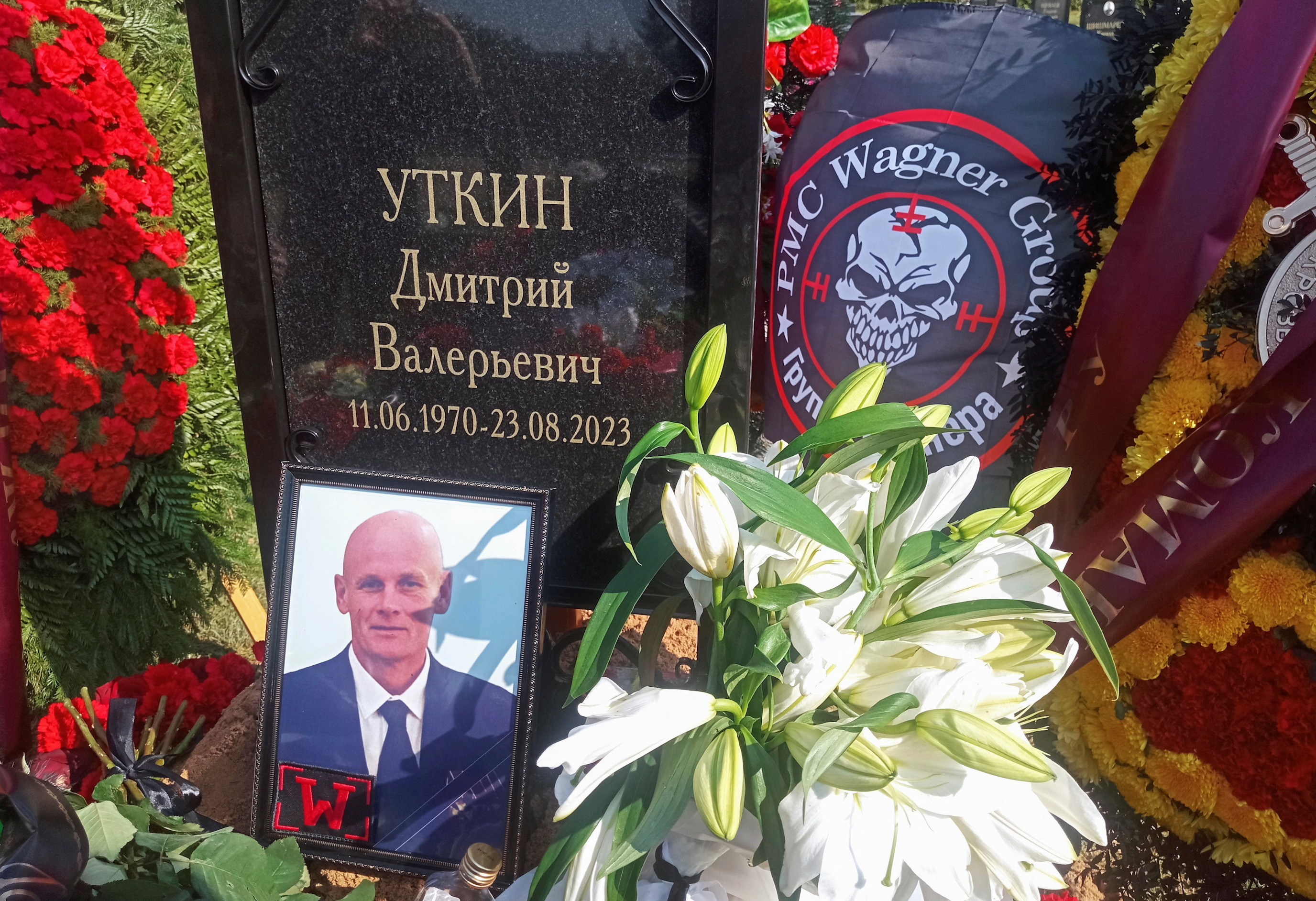
US charges man with helping smuggle microelectronics with military uses to Russia
PHOTO CAPTION: Representational photo — The seal of the United States Department of Justice is seen on the building exterior of the United States Attorney's Office of the Southern District of New York in Manhattan, New York City, U.S., August 17, 2020. REUTERS/Andrew Kelly
MOSCOW (Reuters) -The co-founder and military commander of the Russian mercenary group Wagner was buried near Moscow on Thursday, after dying in an unexplained plane crash that also killed his boss Yevgeny Prigozhin.
Dmitry Utkin, 53, whose call-sign "Wagner" gave the private army its name, was buried in Mytishchi, on the outskirts of the capital, in a ceremony cordoned off by Russian military police, according to the popular online news channel Shot.
After the cemetery was opened several hours later, a Reuters journalist saw an engraved black headstone, a wooden Russian Orthodox cross and at least half a dozen large formal wreaths surrounding the grave.
Some, in red, yellow and black, bore Wagner's official logo, while a flag placed nearby bore a leering death's head symbol that its fighters have also used.
The "Caution, news" Telegram channel said police and members of the Rosgvardia national guard had come to pay their respects, along with a busload of members of the far-right Rusich militia affiliated with Wagner.
Prigozhin had been buried on Tuesday in a quiet family ceremony in his hometown of St Petersburg that contrasted starkly with his loud and often foul-mouthed presence on social media.
Before helping to found Wagner as Prigozhin's shadowy right-hand man, Utkin was a special forces lieutenant colonel in the GRU military intelligence service.
He fought for Wagner to support Moscow's military campaigns in Syria and Ukraine, and was photographed in 2016 at the Kremlin with President Vladimir Putin.
At the end of June, a source told Reuters that Utkin was the leader of an armed convoy of Wagner mutineers that advanced towards Moscow to back Prigozhin's demand that the military leadership resign over its failures in what Russia calls its "special military operation" in Ukraine.
The brief mutiny posed the biggest challenge to Putin's rule since he rose to power in 1999, prompting the president to accuse its authors of "treason" and a "stab in the back".
Utkin, Prigozhin and Wagner's head of logistics, Valery Chekalov, were among 10 people who died when Prigozhin's Embraer Legacy 600 private jet plunged from the sky north of Moscow on Aug. 23.
Many critics of Putin have died in unclear circumstances during his 23 years in power, or narrowly escaped dying.
The Kremlin says all possible causes of the crash will be investigated, including foul play. It calls the suggestion that Putin ordered the deaths of Prigozhin and his men an "absolute lie".
After a deal ended the mutiny, Utkin said in a speech to Wagner fighters: "This is not the end. This is just the beginning of the biggest work in the world that will be carried out very soon," adding in English: "And welcome to hell!"
(Reporting by Reuters; Writing by Kevin Liffey; Editing by Mark Trevelyan)









